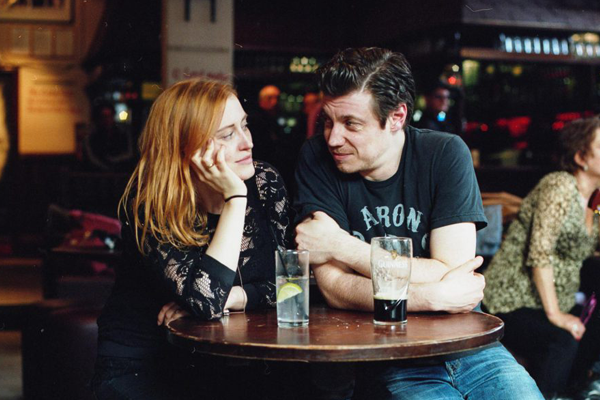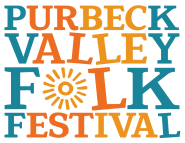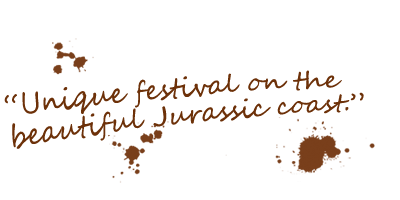The Rails
Friday
(Kami is Richard Thompson’s daughter…)
It would have been easy for The Rails to have picked up where they left off in the wake of their acclaimed 2014 album Fair Warning. And, had they done just that, who would have held it against them? Within months of its release, the debut set of songs by the duo comprised of Kami Thompson and James Walbourne had harvested myriad rave reviews and sundry other accolades, among them Mojo’s Folk Album of the Year award and the prize for Best Newcomer at the BBC Radio 2 Folk Awards. But for a duo brought together by serendipity – they first met during sessions for an album by Kami’s mother Linda Thompson – there was never any doubt that the way forward was to stay open to the vagaries of chance and embrace new possibilities. Three years later, they’re back with an album that emphatically vindicates the pair’s restless curiosity.
Comprised of ten original compositions, Other People is a record rooted in change: both musical and circumstantial. For James, a ubiquitous presence on lead guitar for artists such as The Pretenders, Edwyn Collins and Ray Davies, it was time to inject a bit of voltage into the group he formed with Kami after they became an item in 2011. “With the first album,” explains Kami, “We decided to make a 70s sounding folk-rock record, but this time, we focused our energies on addressing what was happening around us.” In doing so, it became impossible to ignore the other changes that have swept through their immediate and wider environment. One of the earliest songs written for the record was The Cally. Both inspired by and written on the Caledonian Road, which connects Holloway to Kings Cross, the album’s reflective opening salvo took shape after James’ grandfather Sidney Walbourne told him about his drinking companions at The Cally pub, echoes of a pre-gentrified London in which the local boozer paid host to almost every kind of transaction imaginable. The song, which appeared fully formed in James’ head as he found himself walking along the eponymous thoroughfare, also served as a tender memorial to Sidney, who passed away soon after, aged 92.
In the wake of Sidney’s death, James and Kami found themselves pondering whether there was a place for them in the rapidly transforming city where James had spent all of his life. “Part of it was just working out if we could actually afford to live here any more, which is crazy, you know? But that was just a small symptom of a much bigger tragedy, that’s really heartbreaking.” It’s a tragedy the pair confront head on in Brick and Mortar, which sees James’ mourning the desecration of “old Soho”, in particular, Denmark Street, epicentre of the 60s beat boom and, for James, scene of many a teenage afternoon spent soaking up the ambience of its world-famous guitar shops. On the plaintive Leaving The Land – perhaps the most readily recognisable sonic link between The Rails’ first album and this one – Kami delivers one of her most affecting vocals to date. “In some ways, it’s a companion piece to Brick and Mortar,” she explains, “It’s one thing to see your favourite shops razed to the ground, but actually so much of what’s happening is tantamount to social cleansing. In Camden, you’re seeing entire estates pulled down and it’s not being replaced by social housing. It’s being replaced by luxury apartments.”
For James, the contradictions of this new era of austerity are confusing. “You’re surrounded by Keep Calm And Carry On imagery, which is somehow supposed to instil the idea that in tough times, people dig in and discover their sense of community. But sometimes, it’s hard to find evidence of that.” In trying to make sense of that contradiction, Kami and James found themselves writing the album’s title track, a cathartic sigh of exasperation which might just as easily be directed at tax-evading pop stars as the seated commuter too busy staring at his phone to notice the pregnant woman standing next to him. Here and elsewhere, The Rails’ second album is one which lays itself open to the stormy weather of life, be it when addressing the desultory self-justifications of an abusive husband in the broodingly poignant Dark Times, or the everyday ups and downs of James and Kami’s own relationship in Drowned In Blue.
“I think we both felt that the music had to complement what was happening in the words, this time around,” says James. “And that determined the way we were going to make this record.” Key to that process was finding the right producer. At the very top of James’ wish-list was Tennessee-based producer Ray Kennedy, who had impressed him with the “off-the-scale psychedelic country treatment” he meted out on Steve Earle’s benchmark 2000 album Transcendental Blues: “To my amazement, Ray said he’d be up for it. We travelled to his studio, knowing that we had seven days to nail it.” The pressure of the deadline audibly brought out the best in the players assembled to tease out Kami and James’ vision for the songs – a vision which they described to Kennedy as “folk-rock on steroids.” The synergy summoned by the players is abundant throughout Other People, be it Late Surrender, which seems to locate a perfect equidistant point between Roy Orbison and Lucinda Williams, or the yearning desolation of Kami’s vocal on Mansion Of Happiness.
“It was just a dream, really,” beams James. “Our drummer Cody Dickinson [North Mississippi Allstars, son of Big Star producer Jim Dickinson] worked with us on the first album, and we knew we wanted him back for this one. He’s the archetypal Southern gentleman – and y’know, whatever record you’re making, you know you’re gonna need someone who is incapable of being an arsehole!” Augmenting the line-up this time around was former Son Volt bassist and old friend Jim Boquist. With the core band in place, Ray Kennedy steered The Rails through a series of performances in which the only brief was to retain a sense of power, presence and intimacy.
Threaded throughout the whole thing, of course, are the psychically attuned harmonies that have become something of a calling card for Kami and James. In Kami, you can hear something of the lineage that she wears so lightly, in particular the same well of sublime world-weariness that her mother Linda Thompson plumbed both on her solo albums and her records with Richard Thompson. It’s a lineage most outside musicians might have been abashed about entering, but you only need to hear James play to realise that’s never been an issue. Described by Nick Hornby as “an unearthly cross between James Burton, Peter Green, and Richard Thompson”, Other People showcases some of James’s most inspired performances to date. “I think we were all just so relaxed,” he explains, “We wrote a lot before we entered the studio, so we knew the songs so well that it was just a matter of honouring the material.”
For both Kami and James, however, the real moment of payback comes when they get to take these songs on the road. “We’re both very excited about getting to play these songs with an actual band,” says Kami. “It’s just a matter of figuring out how that would work, because rehearsals alone are grounds for divorce, aren’t they?” James emits a rueful laugh. “We’re really quite horrible to each other! She’s like, ‘Just play the fucking chord, will you?’ And I’m like, ‘Well, I will if you can just warm up your fucking voice!’ That’s another reason why it’s good to be touring with a band. They can prize us apart from each other if they need to.”




